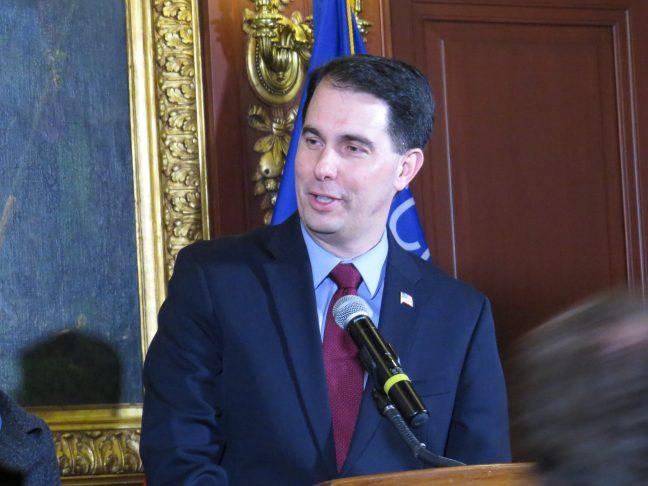In an effort to bolster rural K-12 schools, Gov. Scott Walker announced his intention to increase sparsity and transportation aids in the upcoming state budget Tuesday.
The proposal outlines Walker’s plans to combat some of the challenges facing rural Wisconsin schools, including high transportation costs, lack of dependable broadband access and declining enrollment.
In a news release, Walker said while Wisconsin’s rural school districts face “unique challenges,” his proposal will include funding to address some of the aforementioned obstacles, along with teacher recruitment and retention.
Expanding per pupil spending
One component of the proposal, a $20 million increase in sparsity aid, is designed to help small school districts of fewer than 745 students. Per-pupil reimbursement would also increase to $400 per pupil, according to the Wisconsin Department of Public Instruction.
The total increase in sparsity aid would be $55.4 million over two years, according to the release.
Increasing funding for transportation
Walker’s budget proposal would also reimburse rural school districts in the high-cost transportation aid program with $25.4 million, more than double the last budget. This program provides transportation funding for districts with fewer than 50 people per square mile or transportation budgets significantly higher than the state average.
Increasing broadband investment
Funding for the Infrastructure Grant Program would increase by $22.5 million to reimburse schools for improving information technology.
The Broadband Expansion Grant Program would see an additional $13 million, and the Teacher Training Grant Program would allow $3 million to train teachers how to use educational technology.
In addition to funding these three issues, the budget would include a provision requiring University of Wisconsin Flex Option to develop a program to train paraprofessionals such as teacher’s aides to be full-time teachers, making it easier to pay student teachers.
John Humphries, a candidate for State Superintendent of Public Instruction, applauded Walker’s budget proposal in a statement.
“As Superintendent, I will work with the governor and legislature to ensure all children — no matter where in the state they happen live — have great teachers, safe schools, and the most effective learning tools,” Humphries said.
Republicans could push for further cuts to UW System budget in upcoming session
On the other hand, Senate Minority Leader Sen. Jennifer Shilling, D-La Crosse, was more critical of Walker’s education policies. In a statement, she said Walker’s decision to cut $1 billion total from local schools since 2011 was “devastating for many communities.”
Shilling said Republicans continue to prioritize tax breaks for the wealthy while Democrats are focused on lowering property taxes and restoring state funding.
“We need to restore the $1 billion in state aid that has been cut from our schools and put an end to Gov. Walker’s tax breaks that benefit millionaires and companies that outsource Wisconsin jobs,” Shilling said.


